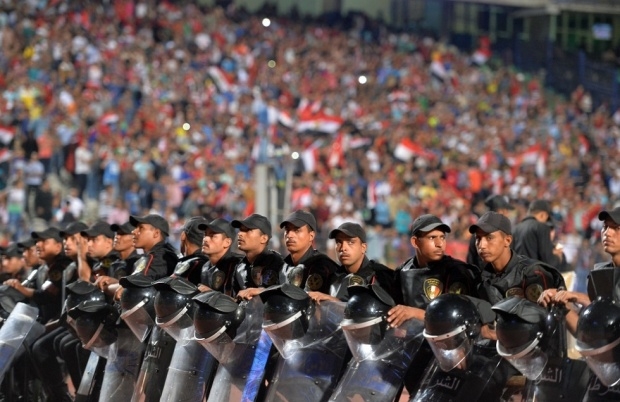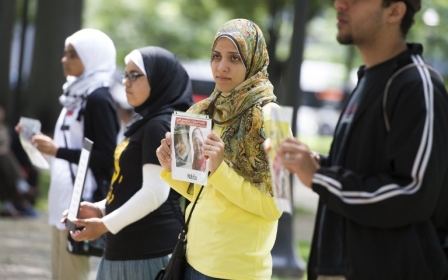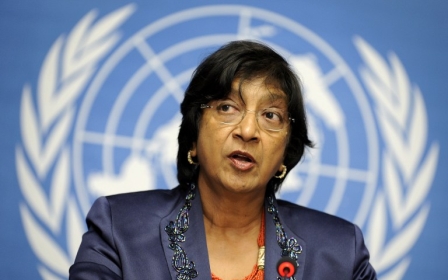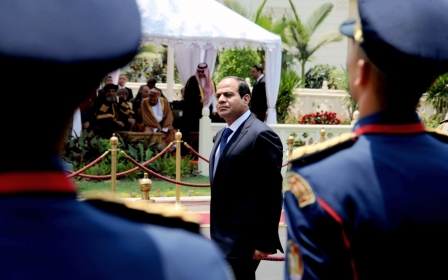Egypt condemns 'politicised' HRW report on rights abuses

Egypt lashed out on Tuesday at a Human Rights Watch report condemning "flagrant human rights abuses" during the first year of President Abdel Fattah al-Sisi's rule, dismissing it as "politicised".
The watchdog released its report on the first anniversary of the inauguration of Sisi, who was sworn in on 8 June 2014, after having ousted his predecessor Mohamed Morsi, Egypt's first democratically elected president, in July 2013.
"The report is politicised and lacks the basic rules of precision and objectivity," the foreign ministry said in a statement, accusing HRW of victimising Egypt.
The report reflected HRW's "endorsement of terrorist operations and supports those who carry out acts of violence", charged the ministry.
It accused the New York-based group of "leading a systematic campaign against Egypt".
HRW charged that "over the past year, Sisi and his cabinet have provided near total impunity for security force abuses and issued a raft of laws that severely curtailed civil and political rights".
Since Morsi's ouster, his supporters have faced a brutal government crackdown that has left hundreds killed in street protests and thousands jailed.
According to the HRW statement, the abuse of human rights and the use of violence by armed groups and the government have escalated in Egypt since Sisi came to office a year ago.
Hundreds of people have also been sentenced to death after mass speedy trials described by the UN as "unprecedented in recent history".
Rights groups accuse Sisi of establishing a regime more repressive than that of veteran ex-president Hosni Mubarak, who was toppled in a 2011 popular uprising.
HRW said the security forces have not been held accountable for the mass killings of protesters that followed the military’s July 2013 coup. These included the killing of at least 900 people in a single day, 14 August, during security operations to clear protest sites in Cairo.
“The al-Sisi government is acting as though to restore stability Egypt needs a dose of repression the likes of which it hasn’t seen for decades, but its treatment is killing the patient,” said Joe Stork, deputy Middle East and North Africa director.
New MEE newsletter: Jerusalem Dispatch
Sign up to get the latest insights and analysis on Israel-Palestine, alongside Turkey Unpacked and other MEE newsletters
Middle East Eye delivers independent and unrivalled coverage and analysis of the Middle East, North Africa and beyond. To learn more about republishing this content and the associated fees, please fill out this form. More about MEE can be found here.




